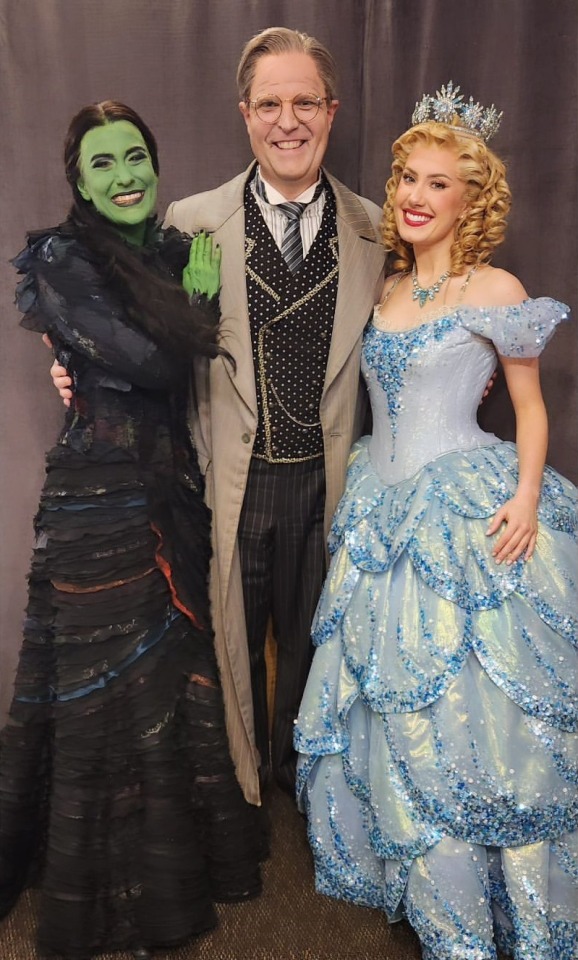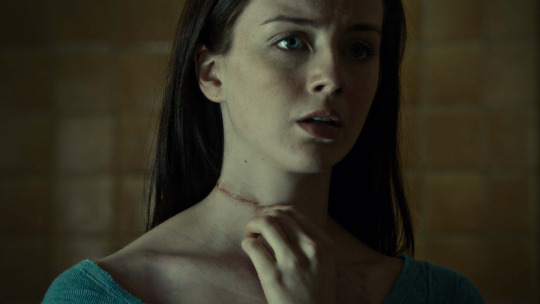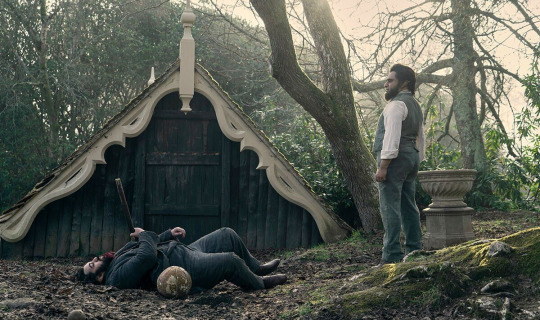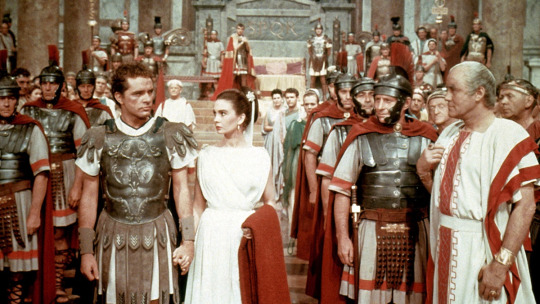#Michael Thatcher
Text

Alyssa Fox as Elphaba
Michael Thatcher as The Wizard (Understudy)
Mckenzie Kurtz as Glinda
#wicked#alyssa fox#mckenzie kurtz#michael thatcher#elphaba thropp#galinda upland#the wizard#understudy love#wicked the musical#wicked broadway#glinda upland#glinda#elphaba#galinda#the wizard of oz
3 notes
·
View notes
Text

Thatcher Demko, Brock Boeser, Elias Pettersson, Michael Buble, Quinn Hughes and Jack Hughes participate in the Tim Horton's NHL All-Star Player Draft at Scotiabank Arena on February 01, 2024 in Toronto, Ontario. (Photo by Mark Blinch/NHLI via Getty Images)
#jack babygirl princessing#jack hughes#quinn hughes#brock boeser#thatcher demko#elias pettersson#michael bublé#asg24
211 notes
·
View notes
Text
Can't Hide Forever - Q.H
@mcdavid97 just posted a story :

@mcdavid97: Had my social media team get a pic of this girl at our last away game so I could get the internet to do its job and find her for me 💓❤️ been looking for a new wifey 😝😝
↪ Replies :
jackhughes : bro WHAT THE FUCK IS @_quinnhughes girl doing on your story 😤🫨
↪ lexlexdemko : @jackhughes you idiot you aren't supposed to SAY ANYTHING! HE WAS WAITING!
y.user: hi @mcdavid97 um that's me but I have a man who doesnt beat other people 🤷🏻♀️🤷🏻♀️
bboeser : @icole28 ready to bust some heads?😬😬
↪ icole28 : time and place @bboser 🤨
↪ y.user : @bboeser @icole28 its ok not everyone knows
↪ lhughes_06 : I dont think that's his point sis...
nicohischier : the devils locker room is going mad with this take it down you low life 🤬🤨🫨
ilyamikheev66 : I got some Russian hitmen still if you want me to call them @jackhughes 🤑🥵
tdemko30 : bud really thought he had something going here 🫨
j.tmiller9 : PLEASE LET ME DROP THE GLOVES ONCE WITH THIS FUCKING IDIOT PLEASE🙏🏻🙏🏻🙏🏻🙏🏻🙏🏻🙏🏻🙏🏻🙏🏻
@_quinnhughes just posted to his story




_quinnhughes : since some people can't keep their fucking eyes to themselves PSA to anyone and everyone : mention, or look sus at @y.user and believe its on sight with the Canucks. 😤🤬🤬
A.N : GOOOOOOOD EVENING this is based on this request "I was thinking if you could make one with quinny where he's in a relationship and his friends, fam, and teammates know but the world doesn't know, she goes to his games, so hear me out, in one of his games a player of the other team sees her in the crowd and asks his staff to take a pic or something and then he posts it on ig story saying that she's so beautiful and it's looking for her, so obviously hell break loose cuz Quinn connot say anything coz none knows, but eventually he can't take it anymore and makes them public 💖🥰" and "Omggg maybe one of the players that have hit Quinn real hard yk. If it's not too much, the girl can have brownish hair pls"
I ABSOLUTLEY LOVED THIS AND I TRIED MY BEST TO MAKE IT HAPPEN <3
I know the first pic isn't at a hockey game but if we just use our imaginations we can pretend it is.
LOTS OF LOVE AND QUINN HUGHES and I will forever not forgive mr mcdavid the same again after he DARE touch THE MASTERPIECE that is Quinn hughes.
xoxoxoxoxox, M
TAGS: @skylershines
#nhl imagine#nhl hockey#nhl players#captain quinn#quinn hughes#michael jackson#luke hughes#nj devils#vancouver canucks#canucks#brock boeser#hughes brothers#hockey fic#nico hischier#thatcher demko#couple goals
61 notes
·
View notes
Text

team hughesnucks & friends
#literally the entire canucks roster + some dudes#nhl all star 2024#jack hughes#quinn hughes#michael buble#frank vatrano#brock boeser#elias pettersson#jt miller#thatcher demko#nikita kucherov#jesper bratt#cam talbot#brady tkachuk#kyle connor
116 notes
·
View notes
Text









there is no other version of this story.
true trans soul rebel - against me! // yellowjackets // lake mungo dir. Joel Anderson // the final girls dir. Todd Strauss-Schulson // revisiting mockingjay - sydney bucksbaum // hannibal // white is for witching - helen oyeyemi // abel and cain in the sandman // the gods show up - michael kinnucan // the worm king's lullaby - richard siken
#web weaving#dead from the start#dead since the beginning#against me#yellowjackets#sophie thatcher#lake mungo#the final girls#the hunger games#mockingjay#hannibal#abigail hobbs#nat scatorccio#the sandman#prim everdeen#white is for witching#helen oyeyemi#michael kinnucan#tw suicide#doomed by the narrative
79 notes
·
View notes
Text



big fan of this genre of character *flicks through notes* …. “sad adult man who’s seen the horrors”
got some new mechanical pencils so i decided to test them out with two of my current skrunklies and michael who holds a special place in my heart :)
#john ward#faith game#faith john ward#faith the unholy trinity#faith unholy trinity#faith airdorf#the mandela catalogue#tmc#tmc fanart#mandela catalouge fanart#thatcher davis#the mandela catalogue fanart#tmc thatcher#the mandela catalogue thatcher#five nights at freddy's#fnaf#michael afton#five nights at freddy’s michael afton#fnaf michael afton#fnaf fanart#dream orchid art
37 notes
·
View notes
Text

No the fuck it won't. She didn't help when she was alive so I really fucking doubt she's going to be helping much in the ground.
199 notes
·
View notes
Text
A small Kansas town is reeling after a baby-faced 23-year-old manipulated procedural technicalities to reinstall himself as mayor in one night, seemingly taking a page from the playbook used by former President Donald Trump after he was voted out of office.
Only, this time, it worked.
“People have said this reminds them of Germany in 1935,” Jeffery Jones, whose bid for a council seat in Goddard, Kansas, collapsed last week as Hunter Larkin abruptly took control, told The Daily Beast. “Like, ‘Hey, we don’t like you anymore and we’re gonna vote you out and put our own person in.’”
The convoluted machinations by which Larkin maneuvered his way back into power were described as “essentially, a coup” and reminiscent of a totalitarian regime, according to one recently departed council member. And while Goddard, a Wichita suburb with a population of just under 5,400, isn’t necessarily going to influence policy shifts on a national scale, the strategy used by Larkin—a right-winger who last year promoted an appearance in Goddard by accused sex pest and conservative kingmaker Matt Schlapp—could serve as a stark warning of what’s possible elsewhere.
“I have to hand it to Larkin,” Wichita Eagle columnist Dion Lefler wrote. “I’ve covered cities for a long time and have seldom seen a political takeover that was this sleazy, and yet this well-orchestrated.”
Larkin’s improbable ascent to office can be traced back to August 2020, when the then-mayor of Goddard stepped down amid a fraud charge for counterfeiting tickets to the local zoo’s “Zoobilee” charity fundraiser. Then-21-year-old City Council President Hunter Larkin was appointed to the job.
In November 2021, Larkin, who by day works as an accounting manager for a fiberglass oil field pipe manufacturer owned by a wealthy local family that has helped fund his political aspirations, was busted for DUI. He later pleaded guilty, receiving a sentence of probation and staying on as mayor until May 2022, when he resigned in the wake of a news report calling his ethics into question. Larkin said he was leaving office to focus on a statehouse run, but kept a seat on the city council.
“This campaign is about giving a voice to the people of our community and defending what so many of us hold dear, like voter integrity, the right to bear arms, protecting the unborn and keeping Critical Race Theory (CRT) out of schools,” Larkin’s campaign website thundered. “As your next Representative, I can promise that I will fight for just that!”
Vice-Mayor Larry Zimmerman was then appointed Goddard’s mayor, and has filled the position since—until last Tuesday night.
The agenda for that evening’s city council meeting didn’t appear particularly unique, at least on the surface; members would, among other things, consider a sign regulation amendment, discuss a road closure request for a Lions Club car show, and appoint a new city councilperson after a councilman named Michael Proctor relinquished his seat on Dec. 31.
Zimmerman nominated Jeffery Jones, who works as a hospice chaplain, for Proctor’s old job.
However, the vote ended in a tie. So Zimmerman instead nominated Aubrey Collins, a radio host and residential solar panel salesman who goes by “Cowboy Rip.” Collins’ candidacy was approved, and he was sworn in.
And, according to Jones, “That’s when everything kind of went haywire.”
As Collins was being seated, Larkin, who lost his bid for the Kansas legislature, immediately moved to amend the agenda and hold a non-public executive session to discuss “unelected personnel.” According to Lefler, the newspaper columnist, Larkin was eager to cast out City Administrator Brian Silcott, who has been critical of him in the past.
At this point, Jones left, thinking the meeting was over.
“Had I known what would happen next, I would have stayed,” he told The Daily Beast. “Because when they came back, that’s when Hunter asked for the election of a new mayor.”
When they returned, Larkin swiftly proposed removing Zimmerman as mayor, a motion which was approved by all except Zimmerman himself. Vice-Mayor Sarah Leland was then installed as mayor of Goddard—briefly. She immediately addressed the others, saying she felt she did not have “the capability to do these job duties… especially the current situation we are dealing with, so I would like to nominate Hunter, as I feel he can complete the steps that need taking.”
And with that, Larkin became mayor, switching seats with Leland, now his second-in-command. Larkin quickly moved to oust Silcott, who he considered a fly in the ointment, prompting now-ex-Mayor Zimmerman to quit his city council seat in protest.
“Before you get to that point, I’d like to tender my resignation from the city council, effective immediately,” he said, and walked out.
The council then filled Zimmerman’s empty council seat with resident Keaton Fish, a support staffer at a local special-ed school. As he took his position, Larkin introduced a motion to terminate Silcott’s employment. They then went to a second closed session to discuss Silcott’s firing, where the decision was consummated. (The next day, Assistant City Administrator Thatcher Moddie resigned.)
“The day and age where unelected bureaucrats ran this town is over,” Larkin later exulted. “This governing body is going to be more involved than ever before.”
This, Jones argued on Friday, is wholly disingenuous.
“Hunter said ‘we’re tired of being run by unelected bureaucrats,’ but I’m like, ‘Well, you’re kind of unelected.’ He was elected as a council member, no one voted him in as mayor [either time]. And right now, there’s a petition out for a recall.”
The recall campaign was started by Proctor, the councilman who quit office on Dec. 31. He called the situation in Goddard “a disaster.”
“He needs to go,” Proctor told The Daily Beast of Larkin, adding that he was baffled by the vice-mayor’s support for his mayoralty.
He said he will need roughly 168 signatures to move the proposal forward, and feels confident he’ll get them.
“Look, there’s complete outrage over this,” he told The Daily Beast. “Getting those votes won’t be difficult, there are plenty of willing participants.”
Proctor has also started a Facebook group called “For Goddard’s Sake,” where he is organizing and rallying support.
“This city is a joke!” one commenter wrote. “in who’s right mind is DUI kid a good choice for mayor after not being re-elected.”
“[H]unter has made it clear that he intends to turn the city into a rental community by helping his developer buddies build as many multi family dwellings as possible,” wrote another. “This is a very clear pattern all in the name of ‘growth’ and it is going to fundamentally change this town. He and his gang now make a majority and will be able to approve whatever Hunter’s little heart desires.”
“So where can concerned citizens file complaints?” wrote a third. “Surely we have a lawyer or three within reach who can help Goddard with its latest problem. Anyone?”
Proctor said he will be filing a report with the sheriff’s office, alleging campaign finance improprieties by Larkin which Proctor claims violate the Goddard city code.
“Somebody’s gotta do it,” he said. “Somebody’s gotta stand up. Otherwise, there’s a vacuum that’s going to be filled by somebody who shouldn’t be doing it.”
Replacing Silcott will also be a heavy lift, according to Proctor, who said Goddard last week “went from a city where up-and-coming city managers would love to come and work, to a bottom-of-the-rung situation, overnight. He’s delivered quite a mess.”
Fish did not respond to a request for comment on Friday. Zimmerman, for his part, told local outlet KWCH that Larkin’s maneuvering “wasn’t right.”
Brady Burdge, an assistant district attorney in Wichita who was in the running for a council seat but withdrew his name on Monday due to his heavy workload, said he found the Larkin situation “really unfortunate.”
“It is definitely troubling,” Burge told The Daily Beast. “The local level is where it all starts, and you definitely don’t like to see things like that happening in your own community… [Larkin] has had trouble in the past building trust with our community, and it looks like it happened again.”
Jones said he is not planning to fight the outcome of the election, and is “just going to let the chips fall where they may.” At the same time, he isn’t going anywhere, anytime soon.
“I feel honored that the mayor at the time selected me, but I’m not going to raise a fuss,” he conceded on Friday. “I told them at that meeting that I want to effect change within Goddard, and if I can't do it from the [city] council, I’ll do it from the community. And I’m going to be there at as many council meetings as I can, where I’ll be bringing up questions that the people want answered.”
For his part, Aubrey Collins said he is looking forward to his first experience serving in public office.
“I have no comment other than, we’re going to do the best we can for the city,” Collins told The Daily Beast. “I believe the steps that were taken will allow Goddard to win. Goddard is gonna win, based on what transpired.”
Before the council session concluded, Larkin remarked, “Today was a tough day. I know. Wasn’t fun, I don’t think anybody here enjoyed it. But I want you all to know it was done out of love.”
Larkin, who told local NBC affiliate KSN TV that he’s not concerned about any challenges to remove him, did not respond to multiple requests for comment by The Daily Beast.
#us politics#news#the daily beast#2023#Goddard#kansas#Jeffery Jones#Hunter Larkin#conservatives#republicans#gop#Wichita Eagle#Dion Lefler#Larry Zimmerman#Michael Proctor#Aubrey Collins#Brian Silcott#Sarah Leland#Keaton Fish#Thatcher Moddie#For Goddard’s Sake#Brady Burdge#ksn tv#kwch
101 notes
·
View notes
Text

Thatcher Island and the churning Atlantic.
PRINT SHOP
#thatcher island#rockport#cape ann#lighthouse#new england lighthouses#lighthouse photography#michael j. clarke lighthouse#lighthouse photographer#north shore#new england#new england lighthouse#architecture#long exposure#atlantic ocean#usa#scenic photography#seascape
14 notes
·
View notes
Text
Fun Facts. 100% verified.
Dunkin Donuts purchased the rights to the song Me and Bobby McGee to advertise their fall flavors and came up with the theme Good enough for Dunkin / and Bobby McPumpkin.
Michael Jordan once bet four and a half million dollars on what he thought would be the opening song at a 1992 Mandy Moore concert.
Known to the press as "The Iron Lady", Margaret Thatcher was known to her friends as "Punchbowl Peggy".
George Eliot planned on writing a sequel called The Tobacconist on the Tay.
A Swiss delegate to the United Nations once asked the General Assembly "after all we did for chocolate and cheese, why did you stick us with Swiss chard?"

11 notes
·
View notes
Text
okay, context. one of my politics teachers is really against us having opinions in our assignments because we're supposed to be impartial in exams. he made the mistake of giving us an assignment where we had to "express the feelings of the youth" on the incumbent government, in whatever way we saw fit. naturally, I turned to tumblr.


submitted on the 13th December so there's very little partygate/recent stuff, and also a lot of the popular posts were quite old. excellent posts by: @michaelgovehateblog @therestlessforest @just-wobert @angrynorthernerr @imangryatthetories @two-sugars-pls @politedemon @ellesgreenaway @northern-punk-lad and @petalsandpurity. sorry about inflicting your posts on my politics teacher. close ups under the cut.






#crim speaks#british politics#uk politics#boris johnson#matt hancock#priti patel#michael gove#margaret thatcher
187 notes
·
View notes
Text

team hughesblé.gif
#jack hughes#quinn hughes#elias pettersson#brock boeser#frank vatrano#jt miller#brady tkachuk#thatcher demko#nikita kucherov#jesper bratt#cam talbot#michael bublé#asg24
71 notes
·
View notes
Text
MF LOOKS LIKE A TIKTOK EBOY

#michael rots#tmc#the mandela catalogue#thatcher davis#tmc vol 333#tmc vol 333 spoilers#LOOK AT THIS FUCKING MAN.#the blorbo
321 notes
·
View notes
Text

Omg Thatcher Davis and Michael Afton?!?!

Original image
15 notes
·
View notes
Text

35 notes
·
View notes
Text

The Robe (1953)
Henry Koster’s The Robe, distributed by 20th Century Fox, appeared near the beginning of an era where religious epics and sword-and-sandal films became massive box office draws worldwide. Cecil B. DeMille’s Samson and Delilah (1949) and Mervyn LeRoy’s Quo Vadis (1951) had already laid the foundation on which Koster’s film, adapting Lloyd C. Douglas’ novel of the same name, would find its success. Despite The Robe being highly influential in Hollywood and becoming the highest-grossing film of 1953, the likes of DeMille’s The Ten Commandments (1956) and William Wyler’s Ben-Hur (1959) overtook it artistically and financially – no shame there, as those are two far superior films.
So what is The Robe’s claim to movie history beyond its initial theatrical earnings? When The Robe first came to theaters, 20th Century Fox advertised it as the first film ever made in CinemaScope. Created by Fox’s president, Spyros P. Skouras, CinemaScope was a format in which a widescreen camera lens contracted its widescreen shots onto regular 35mm film and, during theatrical projection, another lens would de-contract the image from the 35mm film in order to project a widescreen format. Theaters would only need to make minor, inexpensive modifications to their projectors in order to show a film in true CinemaScope, a 2:55:1 widescreen aspect ratio. Almost all other films were shot in the Academy ratio at the time (1.37:1, close to the 4:3 ratio – think: black bars on the left- and right-hand sides of a widescreen monitor – seen on many older standard computer monitors and televisions). With increasing competition from television, Fox executives believed CinemaScope could be a way to lure audiences back into theaters. Despite this overreaction from Fox’s executives (as well as the other major Hollywood studios), the legacy of CinemaScope’s innovation is still apparent today. Seven decades later, widescreen formats, not the Academy ratio, are the default in film and television.
Walking through the markets of Rome, returning Roman Empire tribune Marcellus Gallio (Richard Burton) reunites with his childhood sweetheart, Diana (Jean Simmons), who is now promised to Marcellus’ rival, Caligula (an always-sneering Jay Robison). Not long after, Marcellus – out of pettiness rather than financial sense – outbids Caligula for the Greek slave, Demetrius (Victor Mature). Marcellus immediately frees Demetrius, but Demetrius thinks of himself as honor-bound to stay by Marcellus. Elsewhere, an incensed Caligula reassigns Marcellus to Palestine – which, to the film’s Roman characters, might as well be the armpit of the Roman Empire. Marcellus and Demetrius go to Jerusalem, where they witness a man named Jesus enter the city, heralded by crowds of Jews greeting him with palms. Several days later, Judean Governor Pontius Pilate (Richard Boone) orders Marcellus to crucify Jesus on Calvary. Marcellus executes the order but, during and after the crucifixion, witnesses and experiences supernatural events. Demetrius, who has become a follower of Jesus during that week, obeys Marcellus when he asks him to fetch Jesus’ robe. The moment Marcellus dons the robe, he suffers something like a seizure. He falls out with Demetrius, and spends the rest of the film reckoning with his conscience over his role in Jesus’ crucifixion.
The film also stars Michael Rennie as Peter, Dean Jagger as Justus, Torin Thatcher as Senator Gallio, and Ernest Thesiger as Emperor Tiberius. Michael Ansara and Donald C. Klune are both uncredited as Judas Iscariot and Jesus, respectively.
The Robe has the misfortune of peaking in the first half. The adapted screenplay from Gina Kaus (1949’s The Red Danube), Albert Maltz (one of the blacklisted Hollywood Ten; 1950’s Broken Arrow), and Philip Dunne (1941’s How Green Was My Valley) is at its most interesting whenever Marcellus and Demetrius find themselves at odds with the other. In the scenes they share together, that happens often. But when Demetrius disappears after their disagreement over Jesus’ robe midway through, the film begins to sag with no foil for Burton to play off of.
For the entirety of this film, Richard Burton’s acting is overwrought. Burton, who had just arrived in Hollywood the year before to star in My Cousin Rachel (1952), is leaning too deeply into his theatrical roots here. His grandiose exclamations, stiff facial acting, and inconsistent line delivery result in a performance that is easily the weakest part of this film (Jean Simmons is also guilty, to a far lesser degree, of these same flaws in her performance). The Robe requires Burton’s Marcellus to undergo a spiritual conversion – becoming an adherent of Jesus despite following orders to crucify him, a developmental arc more dramatic than any other character’s in this film. Burton’s inability to convincingly sell this conversion (the stoic masculine tension, which some will interpret as coded homosexuality, between Burton’s Marcellus and Mature’s Demetrius does not help) weakens the film’s spiritual power.
Instead, it is Mature who is The Robe’s reliable scene-stealer. Mature, at one time likened to a “miniature Johnny Weissmuller”, has the classical Greek physique that, frankly, Burton does not. And in contrast to Burton at this time in their careers, Mature was more capable of a nuanced performance, as evidenced in his roles as Doc Holliday in My Darling Clementine (1946) and Nick Bianco in Kiss of Death (1947). As Demetrius, his soul hardened through his enslavement, there remains hope for a life free from the yoke of the Roman Empire and its callous slave masters. One sees it in his face during Holy Week, culminating with seeing Jesus dying on the cross. His faith is there, too, during a torture scene upon his return to Rome and an encounter with Peter. Amid miracles and cruelties, Mature’s Demetrius is simply the most compelling character of The Robe and the viewer – through Mature’s performance, especially in contrast to those of Jean Simmons and Richard Burton’s – can discern his genuine turn of faith. The Robe’s failure to showcase this inner awakening more believably is the fault of its two central actors and its screenplay; Mature’s performance and Demetrius’ characterization are all that saves the narrative.
One aspect of Christianity that The Robe captures confusingly (and oxymoronically) is the insignificance of Judea and the prominence of early Christianity in Rome in the time immediately following Jesus’ crucifixion. Oftentimes in Biblical epics, Judea is a centerpiece of the Roman Empire when, in truth (and in The Robe), it was a relative backwater. By Caligula’s reign between 37 and 41 CE, Christianity almost certainly would not have had a substantial presence in Rome at that time. So while Caligula would probably see Christianity as a threat, the film’s decision to treat the early Christians as a clear and present danger to his rule and the Roman state religion is the film’s glaring historical inaccuracy. The Robe – the book and the film – muddies the timeline from Jesus’ crucifixion to the film’s final scene in Caligula’s court. The relative suddenness of the Roman Empire seeing the early Christians as a very minor cult into becoming an Empire-wide menace is difficult to reconcile.
With few other post-silent film era Biblical epics as a guide, The Robe helps set the aesthetic of its fellow Biblical epics and sword-and-sandals movies going forward through its costumes and production design. The work of costume designers Charles LeMaire (1950’s All About Eve, 1956’s Carousel) and Emile Santiago (1952’s Androcles and the Lion, 1958’s The Big Country) is resplendent, regardless of either the Roman or Judean setting. Art directors Lyle R. Wheeler (1939’s Gone with the Wind, 1956’s The King and I) and George Davis (All About Eve, 1963’s How the West Was Won) and set decorators Walter M. Scott (All About Eve, 1965’s The Sound of Music) and Paul S. Fox (The King and I, 1963’s Cleopatra) all make full use of the CinemaScope format and color to enliven the scenery – a sumptuous visual treat for the viewer, and, to reiterate, setting a standard that the crew of The Ten Commandments and Ben-Hur both would study and surpass.
Of all of 20th Century Fox contracted stalwarts behind the camera, composer Alfred Newman was the studio’s most important figure. If Fox’s executives needed a composer to craft a score for what they would consider would be their prestige motion picture of the year, Newman – who composed the original 20th Century Fox fanfare and its CinemaScope extension (the extension, which is now inextricable from the fanfare, was first introduced in 1954’s River of No Return) – was almost always their first choice.
youtube
In one of Newman’s finest scores of his career, it is his choral compositions, with incredible help from his longtime choral supervisor Ken Darby, that form the score’s emotive spine. Jesus’ motif, shared between wordless choir and strings, appears almost immediately, in the opening seconds of the “Prelude”. During the many invocations of a Messiah before Jesus’ first physical appearance in The Robe, his motif shifts, changes form, and modulates – imparting not spiritual comfort or devotion, but a mysteriousness and otherworldliness. When Jesus (whose face we never see) first appears in Jerusalem on Palm Sunday, the cue “Passover/Palm Sunday” represents one of the rare juxtapositions of the brass-heavy martial music representing the Roman presence in Judea and Jesus himself. The modulation to a major key at 1:22 in this cue, with festive percussion, also includes one of the only instances of celebratory choral music in the score. Jesus’ motif in “Passover/Palm Sunday”, appears at 2:26 – cementing his (and Christianity’s) association with the cue, and appearing as the only instance in which one might consider this motif triumphant.
Choruses, which Western viewers so often associate in religious movies as angelic musical devices, become mournful in “The Crucifixion” – arguably the standout cue of Newman’s score. Even though one might be well aware of Jesus’ death and can anticipate a turn in the music (starting moments earlier in “The Carriage of the Cross”), it is startling to hear Newman’s composition change so rapidly. But it is in these several minutes depicting Jesus’ final moments that Newman, with modifications to his harmonies and orchestration, transforms Jesus’ motif to evoke its tragic dimensions. It is magnificent scoring from Newman, and this is not even mentioning his wonderful demarcation of Roman and Judean identities through his score.
In a film about faith – how it comforts, destroys, heals, and vexes – one wishes that the characterization of The Robe’s supposed lead characters in Marcellus and Diana could feel more plausible. The film’s final scene, possibly allegorizing of screenwriter Albert Maltz’s travails as a blacklisted figure in Hollywood, is decently powerful, but it needs far more storytelling support from numerous scenes preceding it.
As it is, the film’s expressive power lies within Demetrius and Victor Mature’s performance. So how fortunate that, because Fox also wanted to make a sequel to The Robe even before it finished production, Mature also signed a contract to appear in a sequel. Nine months after The Robe made its theatrical debut, Victor Mature starred in Demetrius and the Gladiators, directed by Delmer Daves and also seeing Michael Rennie and Jay Robinson reprise their roles as Peter and Caligula, respectively. Though it did not top the box office for that year like The Robe did, Demetrius and the Gladiators was a financial boon for Fox.
With Hollywood’s major studios always ready to respond to the box office successes of their rivals, The Robe helped make possible the decade of Biblical and sword-and-sandals epics to come – and the required viewings for many a Sunday School student in the years hence. These films were Studio System Hollywood in full maximalism, adopting human and tactile scales seldom seen today.
Yet outside of churchgoers, The Robe – for its CinemaScope and genre-specific innovations – has seen its standing slip gradually over the years, no thanks to the reputations of better movies of this tradition and, regrettably, decisions to keep 20th Century Fox’s valuable past under lock and key. 20th Century Fox’s refusal to distribute their classic films more often and more widely – before and after the studio’s 2019 takeover by the Walt Disney Company (and post-takeover, I believe the situation is now worse) – is resulting in films like The Robe slip through the proverbial cracks of film history, sights unseen for younger film buffs. That is unfortunate, especially as The Robe, almost incidentally (and no matter my aforementioned criticisms of the work itself), continues to quietly wield, by virtue of being the first CinemaScope film, a remarkable influence over cinema worldwide.
My rating: 6/10
^ Based on my personal imdb rating. My interpretation of that ratings system can be found in the “Ratings system” page on my blog. Half-points are always rounded down.
For more of my reviews tagged “My Movie Odyssey”, check out the tag of the same name on my blog.
#The Robe#Henry Koster#Richard Burton#Jean Simmons#Victor Mature#Michael Rennie#Jay Robinson#Dean Jagger#Torin Thatcher#Richard Boone#Michael Ansara#Leon Shamroy#Alfred Newman#Ken Darby#Charles LeMaire#Emile Santiago#Lyle R. Wheeler#George Davis#TCM#My Movie Odyssey
2 notes
·
View notes